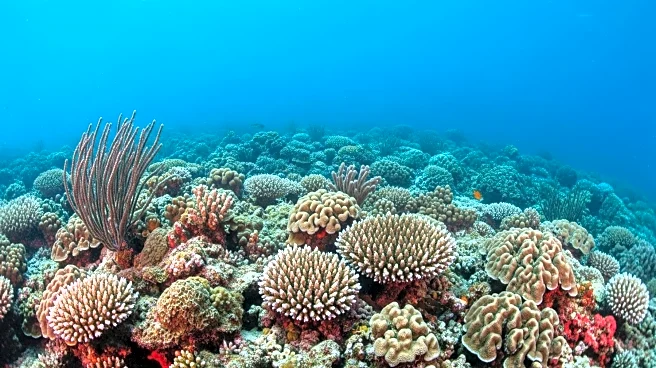What's Happening?
Scientists have reported that the world has reached a significant climate tipping point, marked by the mass die-off of coral reefs due to rising ocean temperatures. This phenomenon is considered irreversible, highlighting the severe impact of climate change on marine ecosystems. Coral reefs, vital for marine biodiversity and coastal protection, are suffering extensive damage, threatening the survival of numerous marine species and the livelihoods of communities dependent on these ecosystems.
Why It's Important?
The mass die-off of coral reefs underscores the urgent need for global action on climate change. Coral reefs play a crucial role in supporting marine life and protecting coastlines from erosion. Their decline could lead to significant ecological and economic consequences, affecting fisheries, tourism, and coastal communities. This development serves as a stark reminder of the accelerating pace of climate change and the necessity for immediate and effective mitigation strategies.
What's Next?
International efforts to combat climate change may intensify, with increased focus on reducing carbon emissions and implementing sustainable practices. Governments and environmental organizations are likely to prioritize coral reef conservation and restoration projects. The scientific community will continue to monitor ocean temperatures and coral health, providing data to inform policy decisions.
Beyond the Headlines
The loss of coral reefs may trigger broader environmental shifts, affecting oceanic food chains and global weather patterns. This could lead to increased advocacy for climate action and a reevaluation of environmental policies worldwide.









